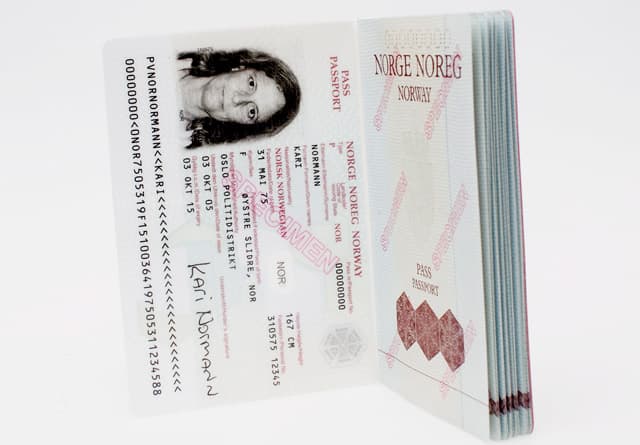Could Norway follow Sweden’s lead and introduce a third gender?

Norway’s Labour Party, the largest party in parliament, will consider backing the introduction of a third gender, broadcaster NRK reported.
Labour’s programme committee will debate the introduction of the third gender category so that Norwegians would no longer need to define themselves as male or female in their passports and other official documents.
Labour’s draft party programme for 2017-2021 states that the party “shall consider the introduction of a third gender category”.
Although the proposal is only under the early stages of consideration, Labour committee member Mani Hussaini suggested that Norway should follow the lead of neighbouring Sweden, which adopted the gender neutral pronoun ‘hen’ into official use in April 2015.
Hussaini, who is the leader of Labour's youth wing AUF, said ‘hen’ could also be used in Norwegian as a gender-neutral alternative to ‘han’ (he) and ‘hun’.
“I believe that all people should be allowing to live out their identity and thus the law should adapt to reality rather than the other way around,” Hussaini said.
“I think that for example in the passport it could show that one is neither male nor female, but belongs to a third gender category, thus a ‘hen’,” he added.
The idea of a ‘hen’ is not entirely new to Norway. The social-liberal party Venstre proposed the introduction of a third gender in April 2016 but it failed to gain traction.
Likewise, Sweden’s adoption of ‘hen’ has not been without controversy. The pronoun sparked massive debate in 2012 when a publisher decided to use it in a children's book. But others argued that 'hen' is not meant to replace gendered pronouns. Instead, it allows speakers to refer to a person without having to mention the gender if they don't know it, if the person is transgender, or if the information is considered irrelevant.
Ultimately, the Swedish Academy agreed to include ‘hen’ in its official dictionary, Svenska Akademiens ordlista, in 2015.
Comments
See Also
Labour’s programme committee will debate the introduction of the third gender category so that Norwegians would no longer need to define themselves as male or female in their passports and other official documents.
Labour’s draft party programme for 2017-2021 states that the party “shall consider the introduction of a third gender category”.
Although the proposal is only under the early stages of consideration, Labour committee member Mani Hussaini suggested that Norway should follow the lead of neighbouring Sweden, which adopted the gender neutral pronoun ‘hen’ into official use in April 2015.
Hussaini, who is the leader of Labour's youth wing AUF, said ‘hen’ could also be used in Norwegian as a gender-neutral alternative to ‘han’ (he) and ‘hun’.
“I believe that all people should be allowing to live out their identity and thus the law should adapt to reality rather than the other way around,” Hussaini said.
“I think that for example in the passport it could show that one is neither male nor female, but belongs to a third gender category, thus a ‘hen’,” he added.
The idea of a ‘hen’ is not entirely new to Norway. The social-liberal party Venstre proposed the introduction of a third gender in April 2016 but it failed to gain traction.
Likewise, Sweden’s adoption of ‘hen’ has not been without controversy. The pronoun sparked massive debate in 2012 when a publisher decided to use it in a children's book. But others argued that 'hen' is not meant to replace gendered pronouns. Instead, it allows speakers to refer to a person without having to mention the gender if they don't know it, if the person is transgender, or if the information is considered irrelevant.
Ultimately, the Swedish Academy agreed to include ‘hen’ in its official dictionary, Svenska Akademiens ordlista, in 2015.
Join the conversation in our comments section below. Share your own views and experience and if you have a question or suggestion for our journalists then email us at [email protected].
Please keep comments civil, constructive and on topic – and make sure to read our terms of use before getting involved.
Please log in here to leave a comment.